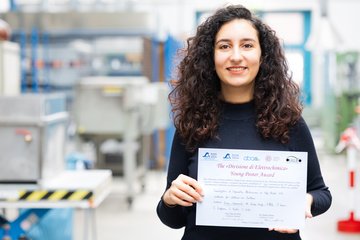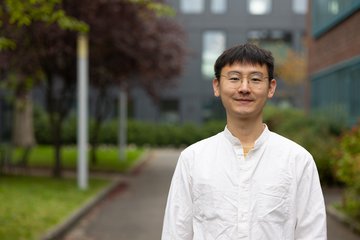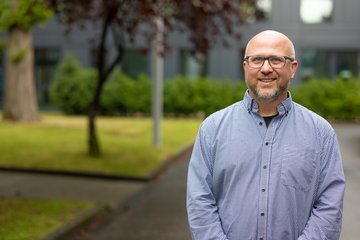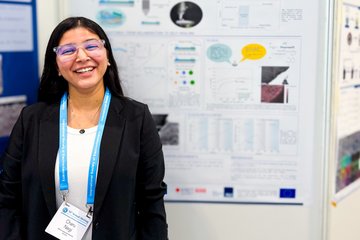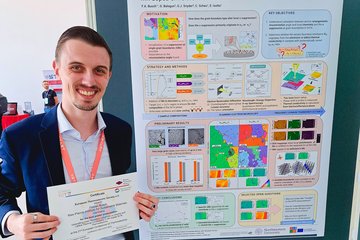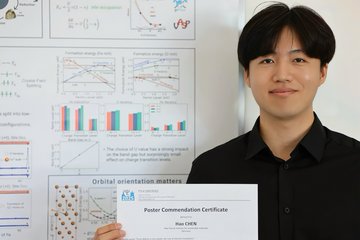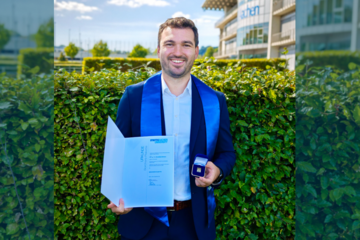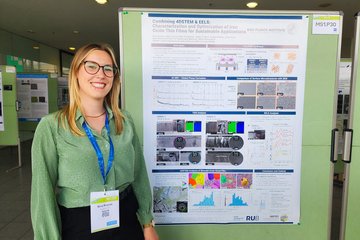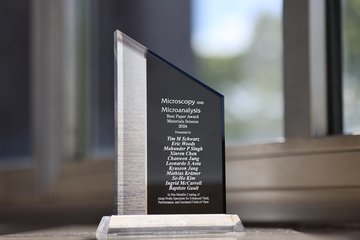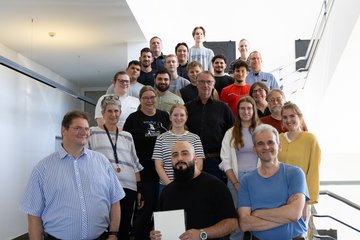All genres
81.
Journal Article
Probing the buried metal-organic coating interfacial reaction kinetic mechanisms by a hydrogen permeation based potentiometric approach. Journal of the Electrochemical Society 163 (13), pp. C778 - C783 (2016)
82.
Journal Article
Promoting Effect of Protecting Group on the Structure and Morphology of Self-Assembled Mono layers: Terphenylylethanethioactate on Au(111). The Journal of Physical Chemistry C 119 (45), pp. 25352 - 25363 (2015)
83.
Journal Article
Spatially and Kinetically Resolved Mapping of Hydrogen in a Twinning-Induced Plasticity Steel by Use of Scanning Kelvin Probe Force Microscopy. Journal of the Electrochemical Society 162 (12), pp. C638 - C647 (2015)
84.
Journal Article
Charge carrier mobilities in organic semiconductors: crystal engineering and the importance of molecular contacts. Physical Chemistry Chemical Physics 17 (34), pp. 21988 - 21996 (2015)
85.
Journal Article
Regenerative Nano-Hybrid Coating Tailored for Autonomous Corrosion Protection. Advanced Materials 27 (25), pp. 3825 - 3830 (2015)
86.
Journal Article
Novel conducting polymer based composite coatings for corrosion protection of zinc. Corrosion Science 95, pp. 110 - 116 (2015)
87.
Journal Article
Ultra high vacuum high precision low background setup with temperature control for thermal desorption mass spectroscopy (TDA-MS) of hydrogen in metals. Talanta 136, pp. 108 - 113 (2015)
88.
Journal Article
Study of the buried interface between zinc and emeraldine base coating. Electrochimica Acta 161, pp. 10 - 16 (2015)
89.
Journal Article
Controllable synthesis of leaflet-like poly (3,4-ethylenedioxythiophene)/single-walled carbon nanotube composites with microwave absorbing property. Composites Science and Technology 110, pp. 166 - 175 (2015)
90.
Journal Article
Modelling and experiment of selective oxidation and nitridation of binary model alloys at 700 degrees C - The systems Fe, 1 wt.%{Al, Cr, Mn, Si}. Corrosion Science 90, pp. 503 - 510 (2015)
91.
Journal Article
Growth behavior of initial product layer formed on Mg alloy surface induced by polyaniline. Journal of the Electrochemical Society 162 (6), pp. C294 - C301 (2015)
92.
Journal Article
Chemistry-dependent X-ray-induced surface charging. Physical Chemistry Chemical Physics 16 (40), pp. 22255 - 22261 (2014)
93.
Journal Article
Early stages of oxidation observed by in situ thermogravimetry in low pressure atmospheres. Corrosion Science 86, pp. 183 - 188 (2014)
94.
Journal Article
Special edition on the occasion of the 60th birthday of Martin Stratmann. Materials and Corrosion-Werkstoffe und Korrosion 65 (4), p. 344 - 344 (2014)
95.
Journal Article
Zn–Mg and Zn–Mg–Al alloys for improved corrosion protection of steel: Some new aspects. Materials and Corrosion - Werkstoffe und Korrosion 65 (4), pp. 392 - 400 (2014)
96.
Journal Article
Thermogravimetry and insitu mass spectrometry at high temperatures compared to theoretical modelling - The weight loss during selective decarburisation at 800 °C. Corrosion Science 78, pp. 188 - 192 (2014)
97.
Journal Article
Effect of ternary element addition on the corrosion behaviour of NiTi shape memory alloys. Materials and Corrosion-Werkstoffe und Korrosion 65 (1), pp. 18 - 22 (2014)
98.
Journal Article
Corrosion of Zinc and Zn–Mg Alloys with Varying Microstructures and Magnesium Contents. Journal of the Electrochemical Society 161 (3), pp. C156 - C161 (2014)
99.
Journal Article
Redox-responsive self-healing for corrosion protection. Advanced Materials 25 (48), pp. 6980 - 6984 (2013)
100.
Journal Article
Polymorphism in self-assembled terphenylthiolate monolayers on Au(111). Langmuir 29 (44), pp. 13449 - 13456 (2013)
